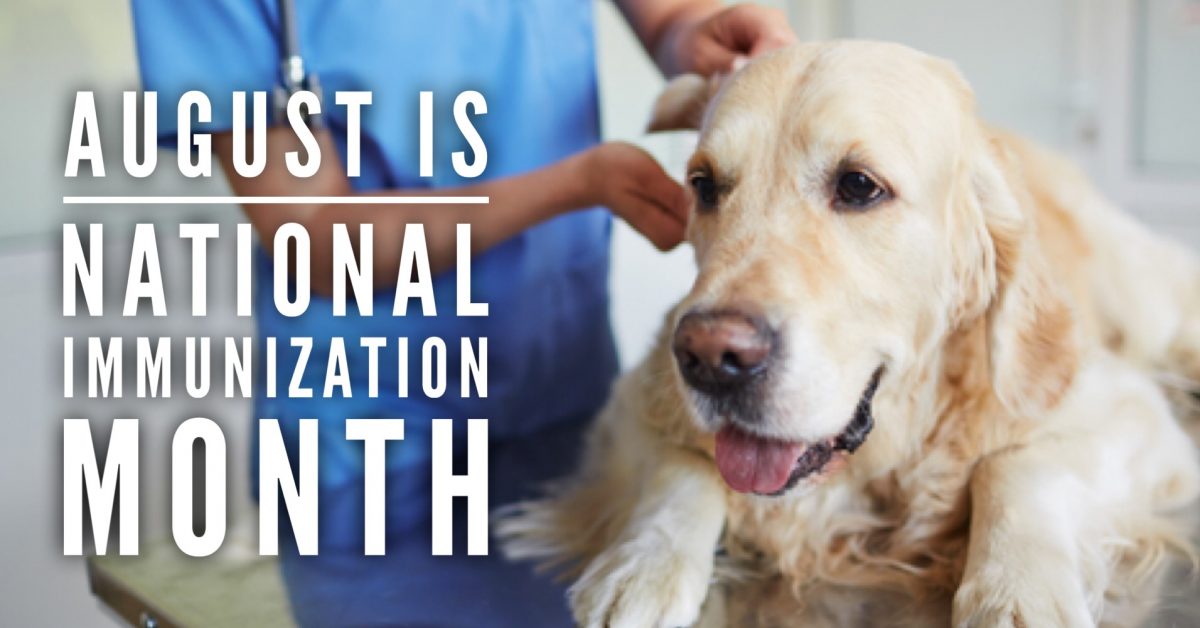
National Immunization Awareness Month
What To Know To Keep Your Dog Protected
August is National Immunization Awareness Month! Veterinary recommendations for vaccines have certainly evolved in the last few years and can vary from dog to dog according to age, region, and lifestyle. Vaccines are a critical part of ensuring your dog stays as healthy as possible, so it’s important to discuss your dog’s immunization schedule with your vet to make sure he is protected.
Vaccines are administered to introduce a killed or weakened microorganism to the body, which produces proteins called antibodies that the immune system uses to neutralize potential infection or disease. The vaccine uses the lowest and least harmful dose required to trigger an immune response to each particular ailment. Each vaccine will vary in duration of protection based on both the manufacturer’s recommendation and the individual dog’s circumstances. Your vet could offer a different recommendation each time he sees your dog, as there are continual changes in our understanding of the immune system, changes in local/regional population susceptibilities to various diseases, longer animal life expectancies, and improved medical record systems, which allows for better tracking of the short, medium, and long-term effects of vaccine use/administration.
According to the American Animal Hospital Association’s (AAHA) vaccine guidelines, the following vaccines are considered core (indispensable) vaccines for all dogs in the United States:
Puppies should receive a rabies vaccine no earlier than 12 weeks. The other core vaccines should be given in a series of 3-4 shots between 6 and 16 weeks, then annually or every three years, depending on the recommendations of your veterinarian.
The following vaccines are considered non-core or lifestyle protection, which is to say they are optional vaccines that dogs can benefit from based on risk for exposure:
If your dog has a history of vaccine reactions, is immune-compromised, or becomes exposed to a communicable disease, your vet may elect to perform titre testing to determine the level of protective antibodies present to combat a specific disease. Antibody measurements above a certain threshold indicate your pet is protected from that disease, measurements below might suggest that a booster is needed.
As always, follow your veterinarian’s recommendations for keeping your dog protected, but make sure everyone is aware of your dog’s lifestyle and medical history so that the correct recommendations may be made to ensure that your pupper remains healthy!
